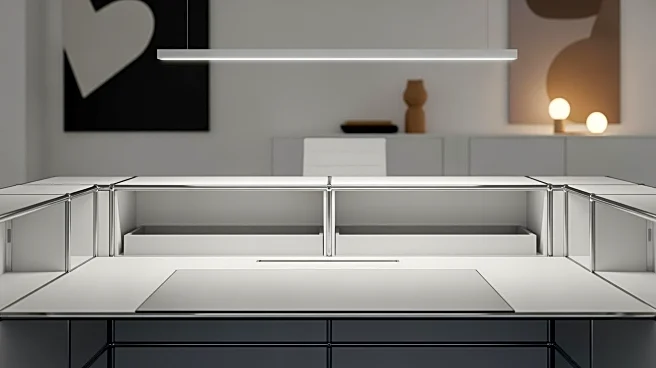What's Happening?
Kingston Modular Systems, an offsite construction specialist based in Hull, has entered administration following a dispute with a client over a withheld payment of £585,000. The company, which faced a slowdown in securing orders in 2024, was unable to resolve
issues raised by the client, leading to cash flow problems. The non-payment resulted in the freezing of Kingston Modular's invoice financing facility, preventing the company from meeting its financial obligations. Despite attempts to sell the business, no viable offers were received, leading to the company's closure and the redundancy of 62 employees.
Why It's Important?
The collapse of Kingston Modular Systems highlights the financial vulnerabilities faced by companies in the modular construction sector. The dispute over payment underscores the importance of clear contractual agreements and effective dispute resolution mechanisms. The company's closure impacts its employees, creditors, and the broader construction industry, which has seen several offsite specialists go out of business recently. This trend raises concerns about the sustainability of modular construction firms amid challenging market conditions and the need for innovation in business models.
What's Next?
The administration process will focus on recovering debts owed to Kingston Modular, with employees expected to receive compensation through the administration. The broader industry may see increased scrutiny on payment practices and contract management to prevent similar situations. Stakeholders, including creditors and former employees, will be monitoring the administration's progress and potential recovery of owed funds. The situation may prompt industry-wide discussions on improving financial resilience and operational strategies for modular construction firms.
Beyond the Headlines
The challenges faced by Kingston Modular reflect broader issues in the modular construction industry, including market volatility and the need for robust financial management. The company's experience may lead to calls for regulatory changes to protect businesses from payment disputes and enhance industry standards. The situation also highlights the potential for innovation in modular construction, as companies seek to adapt to changing market demands and improve their competitive edge.















